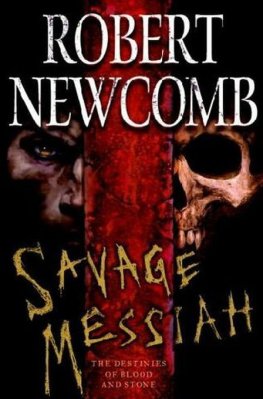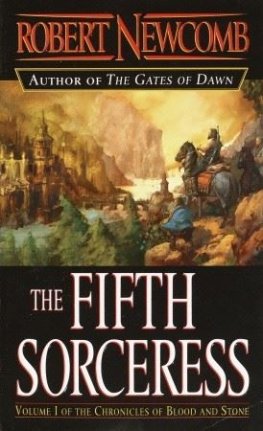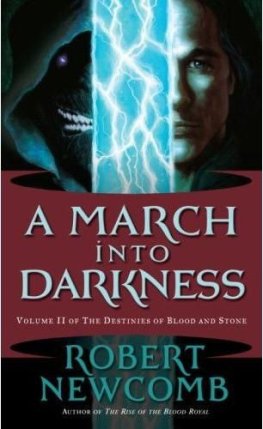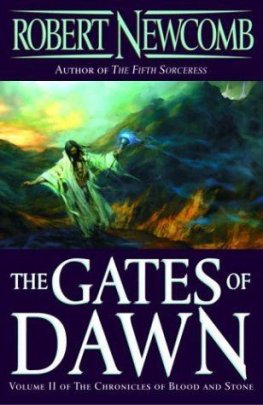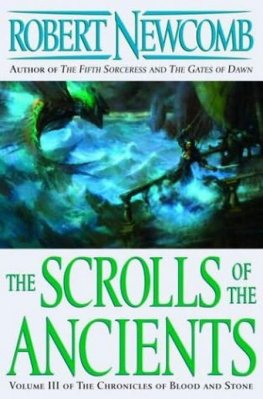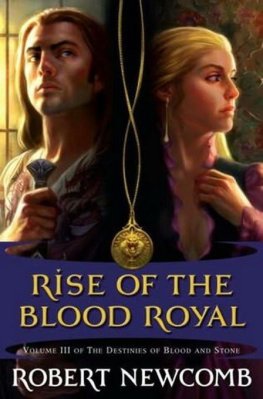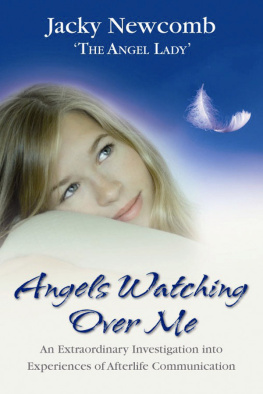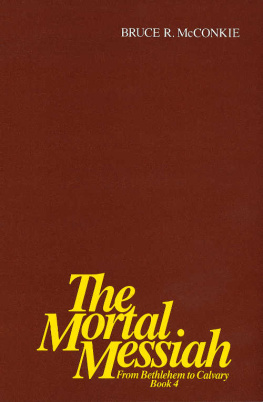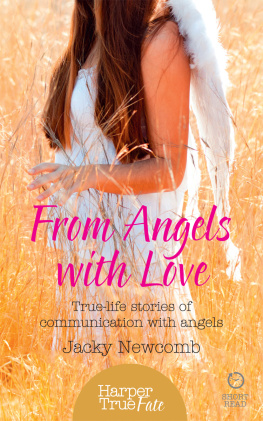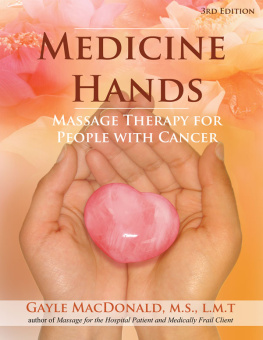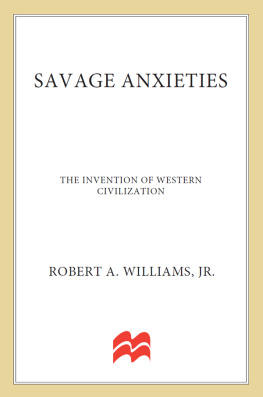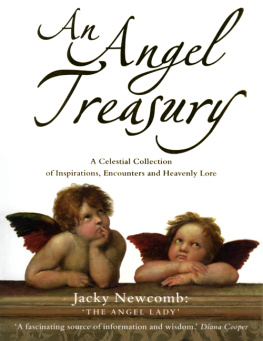Robert Newcomb - Savage Messiah
Here you can read online Robert Newcomb - Savage Messiah full text of the book (entire story) in english for free. Download pdf and epub, get meaning, cover and reviews about this ebook. genre: Romance novel. Description of the work, (preface) as well as reviews are available. Best literature library LitArk.com created for fans of good reading and offers a wide selection of genres:
Romance novel
Science fiction
Adventure
Detective
Science
History
Home and family
Prose
Art
Politics
Computer
Non-fiction
Religion
Business
Children
Humor
Choose a favorite category and find really read worthwhile books. Enjoy immersion in the world of imagination, feel the emotions of the characters or learn something new for yourself, make an fascinating discovery.
- Book:Savage Messiah
- Author:
- Genre:
- Rating:3 / 5
- Favourites:Add to favourites
- Your mark:
- 60
- 1
- 2
- 3
- 4
- 5
Savage Messiah: summary, description and annotation
We offer to read an annotation, description, summary or preface (depends on what the author of the book "Savage Messiah" wrote himself). If you haven't found the necessary information about the book — write in the comments, we will try to find it.
Savage Messiah — read online for free the complete book (whole text) full work
Below is the text of the book, divided by pages. System saving the place of the last page read, allows you to conveniently read the book "Savage Messiah" online for free, without having to search again every time where you left off. Put a bookmark, and you can go to the page where you finished reading at any time.
Font size:
Interval:
Bookmark:
Robert Newcomb
Savage Messiah
PART 1 DEATH
CHAPTER I
"And as each of you is aware, the stone we call the Paragon 'conducts' its gifts to those of endowed blood by way of its twenty-five facets," Wigg told the group of keenly interested women. Out of habit, he placed his gnarled hands into the opposite sleeves of his gray robe.
"These facets allow us control of such arts of the craft as the Kinetic, the Sympathetic, the Formative, and the Causal, to name but a few," the First Wizard went on. "However, it is the Organic facet of the stone that I wish to discuss today." He withdrew his right hand and held up a long bony forefinger.
"It is this facet with which you are the least familiar," he added, "for unlike all the others, it is available only to those persons of partial blood signatures. As you look to the diagram I am about to conjure, you will notice that"
While Wigg droned on, Prince Tristan of the House of Galland sighed deeply. Leaning back, he raised the two front legs of his chair from the floor, ran a hand through his long, dark hair, then crossed his arms over the laces of his black leather vest. His dreggan, the curved sword of the flying warriors known as the Minions of Day and Night, rested on the marble floor beside his chair. The black quiver that held his throwing knives lay alongside it.
On an impulse, he had decided to attend one of Wigg's lectures to the Acolytes of the Redoubt. They were the secret sisterhood of the craft, recently called to Tammerland from their various locations about the countryside. Now the red-robed women sat with rapt attention, many of them zealously taking notes in large leather-bound journals.
A short time into the lecture, the prince realized that he was already familiar with much of the subject matter, due to his recent experiences with the partial adept Abbey. He sighed again. Of all the days to come here, he thought. Unfortunately, walking out on one of Wigg's lectures was not an option. It would send the wrong message to the acolytes, and besides, Wigg would never let him hear the end of it.
Taking another deep breath, he looked around the room.
The Redoubt, the secret underground fortress that lay directly beneath the royal palace in the capital city of Tammerland, housed many such rooms that had once been filled with eager students of the craft-before most of the wizards had been murdered and the consuls, the male counterparts to the acolytes, turned to evil. Now the Acolytes of the Redoubt sat in row after row at long mahogany tables. Before them the First Wizard lectured from a dais. A solid black panel covered the entire wall behind him. When he spoke, his words appeared in glowing azure on its surface, making it easier for the students to keep up as they took their notes. When the panel became full of Wigg's mental scribbles, he erased them with a wave of one hand, and then new words would appear.
The rest of the huge classroom was filled with more tables, bookcases, and desks. Beakers burbled and steamed, glass tubing carried colorful liquids of who knew what to who knew where, and scrolls and texts of the craft lay all about. A chart of arcane symbols took up nearly the entire wall to Tristan's right, their meanings lost upon him. Taken as a whole, Tristan thought, the place looked more like an antiques warehouse than a serious classroom of the craft.
Glancing back up at Wigg, Tristan realized that the wizard had stopped talking and was staring directly at him. Then Wigg raised his infamous, condescending right eyebrow.
With another sigh, the prince pushed his tongue against the inside of one cheek, gently lowered the two legs of his chair back down to the floor, and sat upright again. Apparently satisfied, Wigg continued with his lecture, leaving Tristan to reflect on the wizard's remarkable ability to make him feel like a callow youth rather than an adult and a prince experienced in war and the horrors of incredible evil.
Scarcely a month had passed since Wulfgar-Tristan and Shailiha's half brother-had been killed and his plan to destroy the Orb of the Vigors defeated. The Acolytes of the Redoubt had been called home to Tammerland to receive further training in the craft so that they might once more be sent forth into the countryside to perform the anonymous, charitable deeds for the citizenry that had previously been the sole purview of the consuls of the Redoubt. Many of the consuls had perished in the war against Wulfgar, their new master. Any survivors, Tristan presumed, no doubt remained at the Citadel, the island fortress in the Sea of Whispers that Wulfgar had called home.
Tristan's expression hardened. He and his friends had been successful in defeating Wulfgar and the demonslavers, but the fates of the two Scrolls of the Ancients were still in limbo. The Scrolls held the formulas for the Forestallments-the spells that could be laid into the blood signature of an endowed person, giving him or her power in the craft of magic without years of training. The Scrolls' importance was immeasurable.
The Scroll of the Vigors was now safely ensconced in the Redoubt, but in the final battle with Wulfgar it had been damaged, many of its secrets lost to the world forever. Wigg, Faegan, and Abbey continued to attempt to unravel its secrets, but the work went slowly and with frustratingly little success.
The Scroll of the Vagaries was still missing, presumably hidden somewhere at the Citadel. It had no doubt provided the formulas with which Wulfgar had attempted to destroy the Orb of the Vigors. He had very nearly succeeded. Until the Scroll of the Vagaries came into Faegan and Wigg's possession, it remained a great danger.
Tristan's mood lightened as his thoughts turned to the Conclave of the Vigors. He had ordered the formation of the Conclave just after Wulfgar's death as a replacement for the Directorate of Wizards, the previous governing body of Eutracia. Nine of his closest friends and allies now served on the Conclave with him. Wigg and Faegan, of course, as well as Tristan's twin sister, the Princess Shailiha, and his beloved Celeste. They were joined by the partial adept Abbey-Wigg's longtime love; Tyranny, the female privateer who now patrolled Eutracia's oceans with her fleet; and Adrian, the young acolyte whom the wizards had selected to represent the women of her fledgling sisterhood. The warrior Traax, commander of the Minions of Day and Night, and the hunchbacked dwarf Geldon, both of unendowed blood but great loyalty, completed the nine.
But though the Conclave was in place, and the task of rebuilding the war-torn lands of Eutracia and Parthalon had begun, Tristan had other concerns, ones that lay much closer to his heart.
His azure blood, for one. Due to the supreme quality of his endowed blood, Tristan was the only person in the world ever to employ the craft without having first been trained, or having one of his many Forestallments activated. But when he had performed that unparalleled feat-when he had employed the craft to destroy the Sorceresses of the Coven-his blood had turned a bright, glowing azure-the color always associated with any significant use of the craft. This transformation had created a host of new problems, all of which now seemed too vast and complex to overcome.
First of all, the wizards refused to train him in the arts of magic as long as his blood was blue. They also prohibited him from wearing the Paragon. Only the wearing of the Paragon would enable him to read the Tome, the great treatise of the craft. The prophecies written in the Tome stated that he must decipher the entire treatise in order to fulfill his destiny. Then, as the proclaimed Jin'Sai, or "Combiner of the Arts," he was to join the two sides of the craft for the good of the world. Should he fail or die in his attempt, it was written that his twin sister Shailiha, otherwise known as the Jin'Saiou, would take up the task. If he could, he would spare her that burden.
Font size:
Interval:
Bookmark:
Similar books «Savage Messiah»
Look at similar books to Savage Messiah. We have selected literature similar in name and meaning in the hope of providing readers with more options to find new, interesting, not yet read works.
Discussion, reviews of the book Savage Messiah and just readers' own opinions. Leave your comments, write what you think about the work, its meaning or the main characters. Specify what exactly you liked and what you didn't like, and why you think so.

